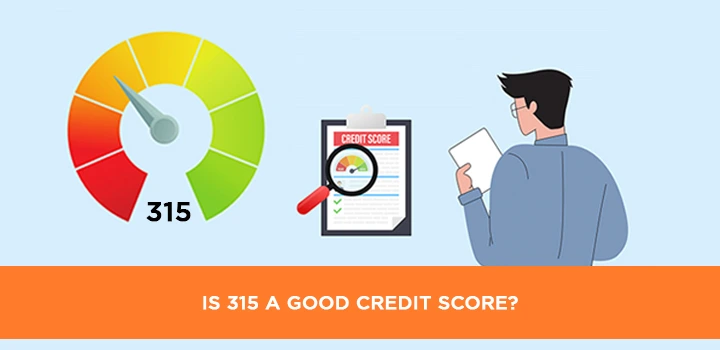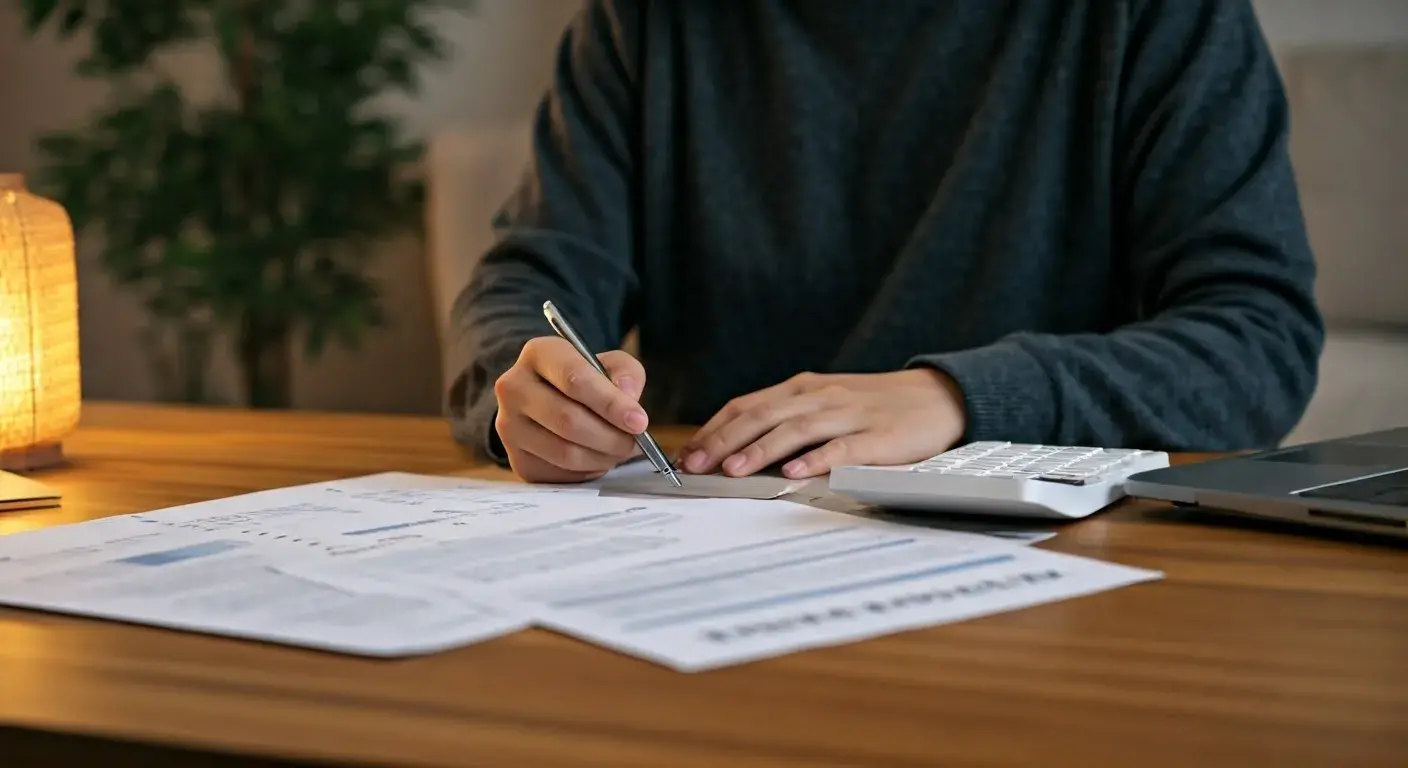-
Posted on: 02 Aug 2023

-
Regarding financial affairs, your creditworthiness is much influenced by your credit score. A strong credit score affects your capacity to get loans, mortgages, and credit cards at reasonable conditions as well as opens doors to improved financial possibilities. This page will explore the realm of credit ratings and address the crucial question: "Is 315 a good credit score?" We will provide professional analysis, insightful advice, and doable actions to raise your credit score and take charge of your financial destiny.
What is a Credit Score?
Let's define a credit score first so we may then discuss the nuances. A credit score is a three-digit figure indicating a person's creditability. Their credit history, payment pattern, and financial responsibility are numerically expressed. Credit ratings let lenders and financial organizations evaluate the risk involved in providing money to a person.
Is 315 a Good Credit Score?
Usually, the range of the credit score is 300 to 850. On the lower end of this range, a score of 315 represents Although a credit score of 315 is not horrible, at most it is acceptable. It may, however, restrict your access to certain financial products and include less favorable conditions and higher interest rates. Usually, you need to have a score of 670 or higher to be deemed to have an excellent credit score.
Why Does Your Credit Score Matter?
Your credit score counts for several purposes. It influences your credit card, mortgage, and loan-securing capability. Usually, a better credit score yields reduced interest rates, which helps borrowing to be more reasonable. Landlords, insurance firms, and businesses also take your credit score into account when deciding whether to rent an apartment, establish insurance rates, or provide employment.
What Factors Affecting Your Credit Score?
Improving your credit score depends mostly on knowing the elements influencing it. Some important elements consist in:
- One of the most important elements in figuring your credit score is your payment history. Your score may be significantly lowered by late payments, defaults, and bankruptcies.
- Credit Utilization: This is your credit use relative to the whole credit limit you have at hand. Using your credit heavily might lower your score.
- Having a variety of many kinds of credit—from credit cards to installment loans to mortgages—can help your credit score.
- A credit score is in part derived from the length of time your credit accounts have been open. Longer credit histories may help.
- Regular applications for new credit could show financial instability and might reduce your credit score.
How to Improve a Credit Score of 315?
Don't panic if your credit score is 315 and you want to raise it; there are actions you can perform to help repair your credit. Here are some useful suggestions:
- Get a copy of your credit report and look for mistakes or disparities. Correct any credit bureau errors.
- Pay Your Bills on Time For all of your bills—including credit cards, loans, and utility bills—regularly pay on time.
- Try to keep your credit use to less than thirty percent. To accomplish this, pay off already outstanding debt.
- Don't open new credit accounts. Limit fresh credit searches to prevent damage to your credit score.
- Authorized User: Get started If at all feasible, register as an authorized user on a credit card belonging to someone else with a clean record. This will increase your score.
- If you find yourself in debt, think about working with your creditors for more reasonable payment schedules.
Conclusion
In conclusion, a credit score of 315 may not be ideal, but it's not hopeless. By taking proactive steps to improve your credit, you can gradually raise your score and gain access to better financial opportunities. Always pay bills on time, reduce credit utilization, and avoid unnecessary credit inquiries. Remember, building good credit takes time and patience, but with dedication and discipline, you can achieve a good credit score and secure a more stable financial future.
Unlock better loan rates with a higher credit score—dial (888) 803-7889!
Faq
Q: Can I get a loan with a credit score of 315?
While it is possible to get a loan with a credit score of 315, your options may be limited, and you may face higher interest rates.
Q: How long does it take to improve a credit score?
Improving a credit score takes time and consistency. It can take several months to see significant improvements.
Q: Will my credit score improve if I pay off all my debts?
Paying off debts can positively impact your credit score, but other factors also play a role.
Q: Can I get a credit card with a score of 315?
It might be challenging to get an unsecured credit card with a score of 315, but secured credit cards may be an option.
Q: Should I close old credit accounts to improve my score?
Closing old credit accounts can shorten your credit history and potentially lower your score. It's best to keep them open if they have a positive history.
Q: How often should I check my credit score?
It's a good practice to check your credit score at least once a year to monitor for any changes or errors.










